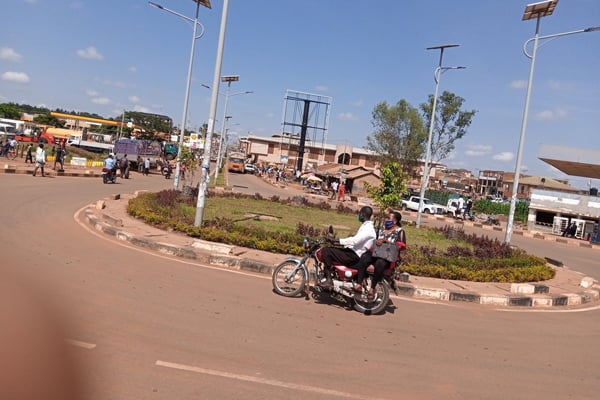Regulate boda bodas through the LC system

Boda-boda cyclists in Uganda. PHOTO/FILE/ABUBAKER LUBOWA
What you need to know:
- The boda boda industry evolvement is a very unique Ugandan story in the world.
I refer to your story in the Daily Monitor of February 7, titled “President lifts curfew on bodas”. As the boda bodas reopen, there is urgent need to establish a robust regulatory mechanism that will promote, coordinate and control the industry cheaply.
First, I want to state that boda bodas have filled a huge gap in our transport system. They offer a fast, flexible and cheap service to the traveller which no other mode of transport is able to offer on the market. They are also able to easily navigate what has now become ‘normal’ traffic jams and get their passengers to their destinations quickly.
They also access remote locations where taxi services are unprofitable and, therefore, uninterested to serve or restrained because of poor or unavailable road infrastructure. Boda bodas also offer timely and cost-effective deliveries and shopping (This can be a good way to reduce jam in the city) as has been witnessed during Covid-19 lockdown and can even do better if well-organised. This has made the boda boda a valuable means of transport and an unequalled player in our public transport system.
Despite the above advantages, boda bodas have become a big concern to the traveller and the public in general. They have become a serious security risk, an important weapon for criminals and a big contributor to traffic congestion and city pollution, not to mention the associated road safety issues. Boda bodas were the biggest cause of motor accidents in Kampala Central Business District accounting for 87 percent of hospitalisations between 2014-2019.
To be able to benefit more from the boda boda services, therefore, especially before KCCA and Ministry of Works and Transport modernises our public transport system in the city, effective regulation is the way to go. Regulation should aim at organising the boda boda industry to address the risk they pose but also direct and promote the industry to offer reliable, safe and better services.
Local Councils (LCs) can be used as the beginning point to regulate the boda bodas, specifically, the LC1.
KCCA and Ministry of Works should use the LC system to regulate the boda boda industry better. The Lcs, which have presence countrywide including the city and have stood the test of time as able administrative centers, can be used to register the boda bodas who work (on stations/stages) in their jurisdiction.
Emphasis should be placed on where the boda boda operates or their stage than where they reside. The LCs would be a cheaper and robust mechanism to regulate bodabodas but also more effective since the LCs would know the operators better and be able to monitor their movements more closely than any other agency.
This LC system would also help the boda bodas eventually achieve a form of industrial self-regulation. Self-regulation is a process where members of an industry or sector monitor their own adherence to legal, ethical, or safety standards, rather than have an independent agency or governmental regulator monitor and enforce those standards. It is a more desired way of regulation. A form of self-regulation would be achievable in this regard because when elections come, bodabodas can participate in electing the LC leaders who in turn will be responsible to them.
The Ministry of Works and Transport and KCCA would then find it easier to mobilise, monitor, train and equip the boda bodas as well as enforce regulations through their respective LCs.
The boda boda industry evolvement is a very unique Ugandan story in the world. It has got exceptional characteristics as a transport mode and immense benefits especially for a developing country like ours if well guided and promoted. The government should not lose it.
Apollo R. Kashanku, Kampala




